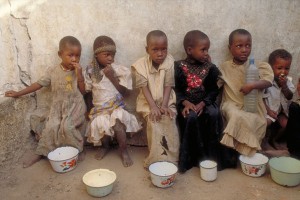Children in Need – It’s Everyone’s Responsibility
Posted on November 06, 2010 by CJ Article Team
 If you’re reading this, it means you have access to a computer. Your children probably use the computer to do research for their school work or even chat with friends around the world. But for millions of children around the world, this kind of luxury is something they can only dream of.
If you’re reading this, it means you have access to a computer. Your children probably use the computer to do research for their school work or even chat with friends around the world. But for millions of children around the world, this kind of luxury is something they can only dream of.
Child poverty strikes at the heart of communities and can shake the very foundations of a society if left unchecked. Today, according to a UNICEF report on international poverty, more than 1 billion people around the world live on less than U.S.$1 a day. This isn’t just confined to the poorer countries; detailed research by UNICEF also estimates that one in 10 children in so-called developed countries live below the poverty line. The National Center for Children in Poverty estimates that nearly 15 million American children live in poverty, their daily lives a continuous battle for survival, fighting the effects of poor nutrition, poor education, and a violent subculture that encourages development of street gangs, guns and drugs. Although the social context of poverty has to be taken into consideration (children in need in the squalid slums of Rio de Janeiro will be contextually poorer than a child living in Detroit, for example), the overall effect is one that negates the God-given right of every child to have a happy childhood, regardless of the culture that child is born into.
Child poverty is characterized as a lack of access to a basic education, a healthy diet and adequate health care. Even in the most developed countries, millions of children in need fall through the social net designed to provide everyone with the basic needs of life. As poverty grips a neighborhood, perhaps through the impact of the economic crisis the world still finds itself in, these basic necessities become harder to distribute fairly and evenly among those who need them most.
It isn’t just a matter of providing financial help. What is needed is a rebuilding of the community, decent jobs, housing, education, and even a clean supply of water. These basics are what give a community its sense of purpose back, a pride in what it can achieve, and that most Christian of values – a willingness to care for its neighbors. Twelve million American children have no health insurance, and millions of others have inadequate provision. Every day, 27 children in the United States die as a direct result of child poverty. These fundamental needs define poverty, whether in the Sudan or South Carolina.
By facing up to and dealing with poverty in our own backyard, we can understand more about its effects across the world, and begin to work out how we can help children in need – not just by simply throwing our spare dimes and nickels into a charity collection pot, but by crafting workable solutions that involve the communities themselves.
For every $1 invested in giving children in need a good start in life, the country saves $7 in costs spent on health and in meeting other basic needs. Defeating child poverty needs not just money, but a change in how we think.
Author is a freelance writer with a deep-seated concern for the effects of child poverty. An experienced journalist, she is an active supporter of Compassion International and the work it carries out to help children in need in communities blighted by poverty.
Article Source: http://EzineArticles.com/?expert=Jeremy_P_Stanfords
Facebook Comments:


































